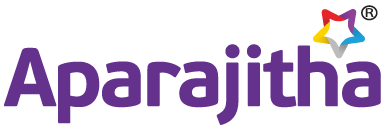Provident Fund
Employees’ Provident Fund is a statutory benefit payable to employees working in India. The Employees’ Provident Funds and Miscellaneous Provisions Act, 1952 ("Act") is applicable pan-India. The administration and management of the Employees’ Provident Fund (EPF) are carried out by the Central Board of Trustees (CBT) established by the Central Government consisting of representatives of the Government, employers, and employees respectively. The Employees’ Provident Fund Organization (EPFO) assists this Board in its activities.
Concept of Employees’ Provident Fund
EPF is a welfare scheme brought into force to secure a better future for employees. It is a statutory benefit available to the employees post-retirement or when they leave the services. In the case of deceased employees, their dependents will be entitled to the benefits. Under the Employees’ Provident Fund Scheme (EPF Scheme) both employers and employees must make their contributions to the Fund. Interest earned on the amount is credited to the member’s Provident Fund Account (PF account) and is available to the employee at the time of retirement or exit from employment, provided certain conditions are fulfilled.
Types of schemes under the Act
-
Employees’ Provident Fund Scheme, 1952: Employees’ Provident Fund Scheme was set up under the Act to provide a post-retirement benefit for the employees or a class of employees or their legal heirs in case of death, employed under an establishment to which this Act applies.
-
Employees’ Pension Scheme, 1995: Employees’ Pension Scheme was framed under the Act to provide the superannuation pension, retirement pension or permanent total disablement pension to the employees of any establishment or class of establishments to whom this Act applies; and widow or widower’s pension, children pension or orphan pension payable to the beneficiaries of such employees.
-
Employees’ Deposit-linked Insurance Scheme, 1976: Employees’ Deposit-linked Insurance Scheme (EDLI Scheme) was framed under the Act to provide insurance benefits to the employees of an establishment or a class of establishments to whom this Act applies in case of death while in service.
Applicability
Employees’ Provident Fund has been set up under The Employees’ Provident Fund and Miscellaneous Provisions Act, 1952 (“Act”) applicable pan-India. The Act applies to every factory or industry mentioned in Schedule 1 of the Act, wherein 20 or more persons are employed or to any other establishment which the Central Government specifies by notification in the Official Gazette, even when the number of employees is less than 20.
Eligibility to be a member of EPF
Enrollment for PF membership is mandatory for:
-
Any person employed for wages for any work of an establishment either manual or otherwise.
-
Any person employed through a contractor or engaged as an apprentice but not being an apprentice under the Apprentices Act, 1961.
-
Any person under the standing orders of an establishment, earning less than or equal to Rs. 15,000 per month other than the excluded and exempt employees under Section 17 of the Act.
Withdrawals from EPF account
The funds from an EPF account can be withdrawn completely in full settlements on attaining 58 years of age or at the time of retirement the employee can claim for a complete settlement or if an employee remains unemployed for 2 months or more or in the case of death while in service before attaining the age of retirement, in which case the nominees or legal heirs are entitled to withdraw the accumulated fund.
The partial withdrawal of funds from the EPF is available for educational opportunities, medical treatments, repayment of home loan, wedding, purchase of land/house/flat, in case the establishment/factory is closed, natural calamity, a year before retirement and unemployment for more than one month.
Benefits
The employees covered under the various schemes of the Act are entitled to the following benefits
-
Employees can take advances or make withdrawals*.
-
PF amount of a deceased member is payable to the nominees or legal heirs.
-
The employer not only contributes towards the PF but also makes the necessary contributions towards the employee’s pension which can be used by the employee post-retirement.
-
Under the EDLI Scheme employees are properly insured to avail of the lump sum benefit at the time of death while in service.
-
EEE (Exempt, Exempt, Exempt) tax benefit under the Income Tax Act enables tax-free returns for the employees.
-
Employees receive special benefits in the form of added income to their savings in the form of interest.
-
PF account can be transferred if any member changes employment from one establishment to another where such a Provident Fund scheme is applicable.
*Refer the FAQs on withdrawals for applicable terms and conditions






